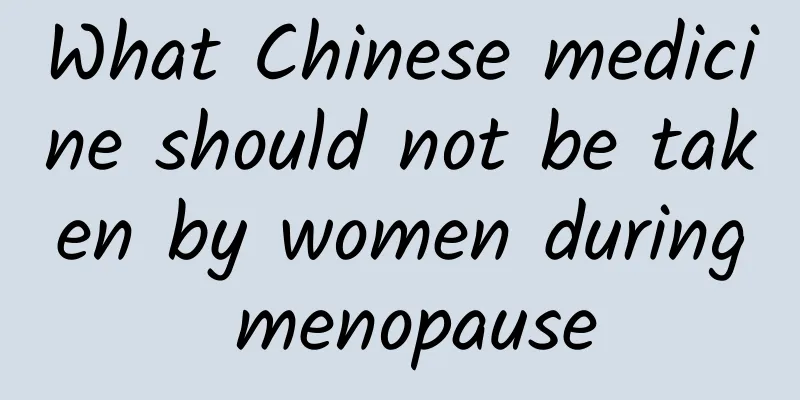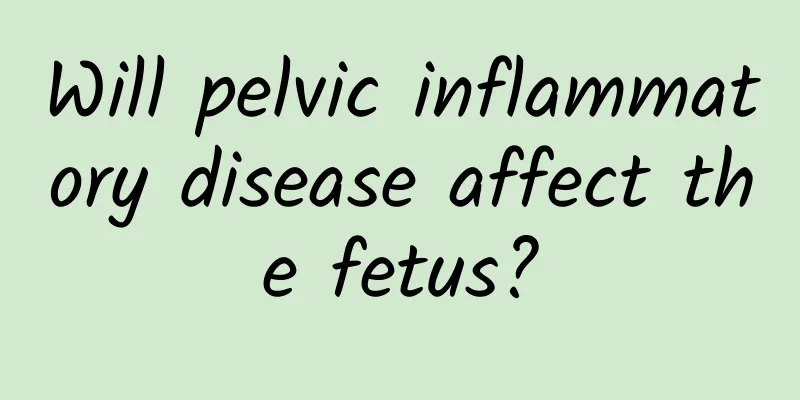What Chinese medicine should not be taken by women during menopause

|
Taking inappropriate Chinese medicines during menopause may pose a safety hazard to women. Some Chinese medicines that may cause hormone disorders or aggravate the condition need special attention. For example, Chinese medicines containing a large amount of phytoestrogens may disrupt the hormone balance in the body, and Chinese medicines with extreme cold and heat may increase discomfort symptoms. It is recommended to consult a Chinese medicine practitioner to prescribe a personalized prescription based on the specific situation. 1) Avoid Chinese medicines containing large amounts of phytoestrogens Chinese medicines such as Polygonum multiflorum and Astragalus contain high levels of phytoestrogens, which may interfere with hormone regulation in women during menopause. Since estrogen levels in women during menopause fluctuate greatly, taking such medicines may aggravate symptoms such as breast tenderness and mood swings, and even increase the risk of breast diseases. It is recommended that women during menopause use such Chinese medicines with caution, especially without professional guidance. 2) Use cold or hot drugs with caution Cold medicines such as rhubarb and gypsum, or hot medicines such as aconite and cinnamon, can easily aggravate the discomfort of women during menopause. For example, cold Chinese medicines may cause body coldness or diarrhea, while hot medicines may cause internal heat or dryness. The cold and hot properties of Chinese medicines are closely related to the patient's constitution. If used indiscriminately, it will affect the balance of the body. When women in menopause use cold and hot medicines, they need to use them according to syndrome differentiation under the guidance of a doctor. 3) Be careful of Chinese medicines containing toxic ingredients Women in menopause are susceptible to the toxic components of some traditional Chinese medicines due to their weakened metabolic function. For example, common toxic herbs such as Aconitum, Chuanwu, and Caowu may cause serious consequences such as arrhythmia and nervous system damage if taken improperly. Such drugs are generally processed and detoxified before they can be used safely, but they still need to be selected under the guidance of professional doctors. Women in menopause need to be extra careful when choosing Chinese medicine for conditioning, and avoid blindly taking the above types of Chinese medicine, so as not to increase the burden on the body or cause potential risks. It is recommended to use appropriate Chinese medicine prescriptions through syndrome differentiation and treatment under the guidance of Chinese medicine professionals, and combine diet conditioning and health management to ensure good health and smooth menopause. |
<<: The harm of electrocautery for cervical erosion
>>: Common symptoms of vaginal candidiasis
Recommend
Will body temperature rise during menopause? What are the other symptoms?
Menopause is a necessary process for women. Gener...
Causes of acute cervicitis
Cervicitis is the first manifestation of many gyn...
What are the symptoms of adnexitis?
Adnexitis may cause symptoms such as abdominal pa...
Traditional Chinese medicine treatment of endometrial tuberculosis
Endometrial tuberculosis is a disease of reproduc...
A good figure starts with self-cooked slimming meals! Serving beef, tofu and cheese baked eggs in 25 minutes
Many years ago, my husband and I only worked and ...
What are the six symptoms of irregular menstruation?
Menstruation is a special physiological period fo...
Yoga balls have many uses! Slimming belly and helping pregnancy
Conceiving a life is one of the most important th...
What causes pelvic effusion in women?
Pelvic effusion is one of the common gynecologica...
How big are multiple uterine fibroids before they need treatment? Are multiple uterine fibroids benign tumors?
Uterine fibroids are benign tumors and one of the...
Can I steam after an abortion? See what the doctor says
Abortion is very harmful to women's bodies. A...
What preparations should be done before abortion surgery
If a woman finds herself pregnant but does not wa...
How to treat moderate cervical erosion in women? Try these treatments to treat moderate cervical erosion
Many women do not take good care of their bodies ...
Experts explain what to pay attention to before abortion
Abortion is the best way to solve unwanted pregna...
Can Baofukang suppository treat cervical erosion? Learn 3 things about Baofukang suppository and cervical erosion
Most married women will have cervical erosion, bu...
How long does it take to recover from uterine fibroid surgery?
Generally, it needs to be judged based on the sur...









